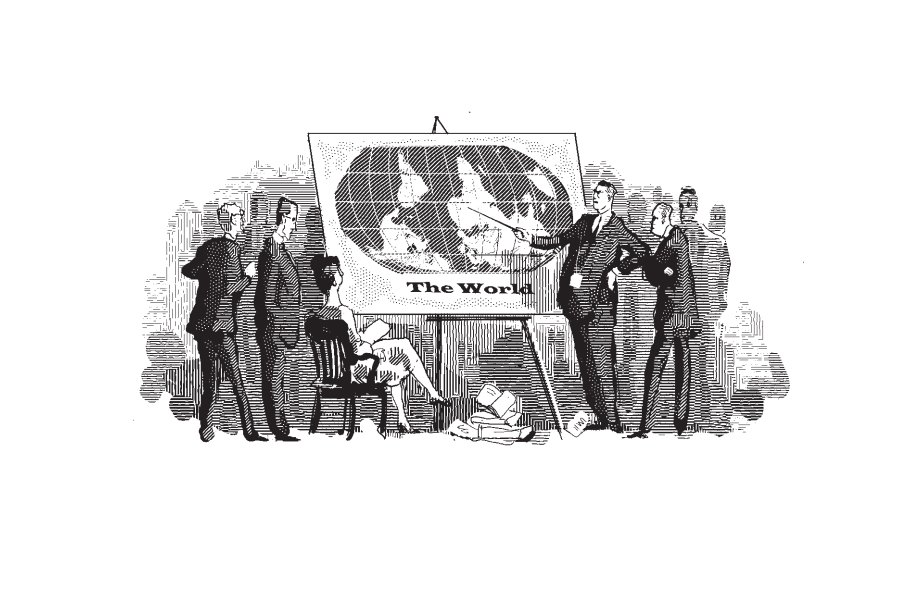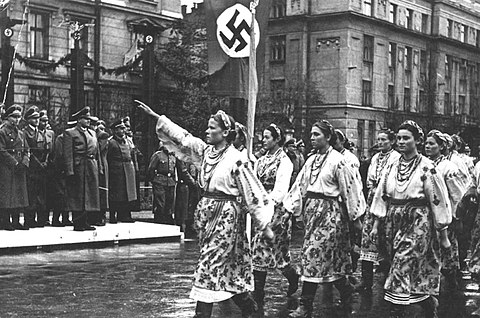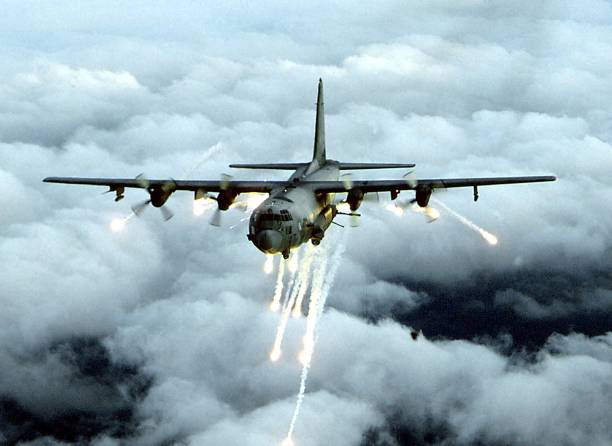(From the Claremont Institute, 2007 (Bush years): Important read, even for the average citizen. Same sort of self-serving decision-making of the likes of John Brennan, so very insightful about things to come.
(Notice to future prosecutors, use these volumes to build your cases. We need to refresh ourselves on the Natural Law of Bureaucracies and Homo Bureaucraticus)
A review of At the Center of the Storm: My Years at the CIA
and Safe for Democracy: The Secret Wars of the CIA by John Prados
By Angelo Codevilla, this article originally was published in CRB (Claremont Review of Books) in Summer, 2007 ….Back by Popular Necessity
Perceptive observers have long recognized the insufficiency and dysfunction of U.S. Intelligence in general and of the CIA in particular. David M. Barrett’s masterly The CIA and Congress: The Untold Story From Truman to Kennedy (2005) notes that legendary New York Times national security correspondent Hanson Baldwin derided the CIA as full of “chair warmers” and “empire builders” even in its salad days. The great radio journalist Fulton Lewis, Jr., said that the CIA had few of the sources it claimed—”if any.” And Congressmen John Taber and Henry M. Jackson, the CIA’s principal mid-century overseers, agreed. There has always been an enormous gap between what presidents, Congress, and the public imagine the CIA knows and what it can really deliver. Occasional tidbits of privileged information get lost in a sea of the Agency’s own opinions. Its “estimates” have always been inherently political documents, and its executive summaries are written to be leaked.
Every president (with the exception of the first President Bush, a former CIA head) has fumed about being embarrassed by the Agency’s failures or undercut by its ploys. But none has yet disabused himself and the American people of the myth, which Hollywood loves to reinforce, that America is served by real spies, valiant men of derring-do. The mainstream media have given top cover to this fiction, indulging conspiracy theories of the CIA as right-wing imperialism’s invisible hand. The Agency eats it up.
The CIA has always valued fighting battles in Washington more than fighting America’s battles abroad. Thomas Powers’s The Man who Kept the Secrets (1979) relates how Frank Wisner, one of the Agency’s founding greats, would “drop everything” to get “Scotty” Reston of the Times “back on the beam.” Because CIA officials have always seen themselves primarily as policymakers, feeding pet journalists (Joseph and Stewart Alsop in the 1950s, Newsweek‘s Michael Isikoff today) is standard practice. There is no comparison between the treatment that the CIA gives to journalists and scholars (and to their inside sources) who are part of the Agency’s long campaigns on behalf of its point of view, and to those who are not. Lately, the CIA has raised the stakes by encouraging its officers to publish books. Michael Scheuer’s Imperial Hubris (2004) and Richard Clarke’s Against All Enemies (2004) were part of its campaign against George W. Bush’s re-election. Although its policies and prejudices usually match those of liberal presidents (they never match those of conservative ones), they are always its own.
* * *
At the Center of the Storm is the latest look at the CIA from the inside. Former director George Tenet begins by contrasting himself with his predecessor, John Deutch, who told “the New York Times Magazine that he did not find many first-class intellects at the Agency. ‘Compared to uniformed officers…they certainly are not as competent, or as understanding of what their relative role is and what their responsibilities are.'” Tenet never disputes this characterization, but notes that Deutch destroyed himself by saying such things. Tenet prefers to please the Agency, lauding its “clandestine service”—some 98% of whom serve under purely nominal cover and lead lives as safe as those of any other bureaucrats—as “men and women who dared to risk it all every day to protect our nation” and people “who have done things you have not read about in spy novels.” The examples he gives, like a routine diplomatic meeting with a Taliban representative, are underwhelming to say the least. The Agency backed Tenet for its director because he had overpraised and overfunded it when he served on the staff of the Senate Select Committee on Intelligence. It supported him as director because he continued to follow his penchant for serving those on whom his interests depend. Accurately, he describes his own intellectual contribution as adding “color” to its briefings. And now he has his reward: board memberships and consultancies at Guidance Software, L-1 Identity Solutions, and The Analysis Corp. (TAS) worth some $2.2 million a year to him—companies funded in part by contracts awarded by the folks whose careers he made at the CIA.
Tenet’s book is filled with bald self-interest. In one episode, the author tells us that at the Wye Plantation in 1998 he went to the brink of souring what might have been peace between Palestinians and Israelis by threatening to resign if President Clinton commuted Israeli spy Jonathan Pollard’s life sentence. Tenet mentions none of the arguments surrounding the Pollard case, only that if Pollard’s release had resulted from a conference in which he had participated, “I would be effectively through as CIA director…. I would have no more capital left with my troops…. I will never be able to lead my building.” So much for justice or the national interest.
Understanding Tenet’s account of U.S. Intelligence in the context of personal and bureaucratic interest makes perfect sense of his otherwise lame explanations for the Agency’s failings. In May 1998, for example, Senate oversight chairman Richard Shelby asked why the CIA was surprised when India and Pakistan exploded nuclear weapons. The former director explains that, though he “didn’t have a clue,” failure to warn of the test really wasn’t “colossal” because “the identification of the Indian nuclear test preparations was a difficult intelligence-collection and analytical problem.” There was lots of evidence that the nukes were going to be tested, but the CIA “did not sufficiently accept that Indian politicians might do what they had openly promised—conduct a nuclear test.” How could the CIA be expected to decipher such a challenge?
* * *
The book is clear that the CIA, and it alone, is the arbiter of what the world is really like. Things exist insofar as the CIA acknowledges them. And if an unacknowledged reality flares up, the Agency is blameless because, by definition, that reality was beyond human understanding. Any perception of the outside world that conflicts with the CIA’s is, by definition, partial, unprofessional, and illegitimate. This attitude became official during the Carter Administration when the CIA renamed its analytical shop “The National Foreign Assessment Center” (NFAC). Though it dropped this label in 1981 after Reagan officials mocked its pretense of being “The Ministry of Truth,” it hasn’t changed its tune. Thus Tenet writes: “Policy makers are allowed to come to independent judgments about what the intelligence may mean…. What they cannot do is overstate the intelligence itself…. They must clearly delineate between what the intelligence says and the conclusions they have reached” (emphasis added). In other words, the CIA’s duty to say what the evidence is (and is not), and to distinguish between facts and conclusions limits the exercise of their nominal superiors’ judgment.
Tenet and the CIA wield this claim as a shield against their failures, and as a sword against their domestic rivals. The Agency confuses “the intelligence itself” and “what the intelligence says” with its own conclusions, dismissing any facts that lead to contrary conclusions as “cherry picking,” “fragments,” or ” their own set of facts.” The CIA argues strictly by its own authority, and by making up standards to fit its needs in any given circumstance. In 2002, the Agency had concluded that Iraq had weapons of mass destruction. Tenet certified this by prominently sitting behind then-Secretary of State Colin Powell as he delivered his February 5, 2002 testimonial to the United Nations. In his book, Tenet explains: “It would have been helpful to have clarified that the use of the words ‘we judge’ and ‘we assess’ meant we were making analytical judgments, not stating facts.” Confusing fact and judgment in one direction was convenient at the time. Distinguishing them became convenient later.
Despite these confusions, he still maintains that “one thing is certain, we consistently told the Congress and the administration that the intelligence did not show any Iraqi authority, direction, or control over any of the many specific terrorist acts carried out by al-Qa’ida.” That’s weasel-worded longhand for saying Saddam Hussein’s Iraq was not responsible for terrorism. But why should we care whether Iraq’s government bodies exercised “authority, direction, and control” over specific acts? Isn’t it more significant to ask about the many ways in which Saddam’s Iraq contributed to terrorism? Tenet had informed the Senate in February 2002 that Iraq “has also had contacts with al-Qa’ida. Their ties may be limited by diverging ideologies, but the two sides’ mutual antipathy toward the United States and the Saudi royal family suggests that tactical cooperation between them was possible.” He acknowledges that Saddam provided training, safe haven, and contacts to al-Qaeda and lots of other terrorists. He also mentions that the vice president’s staff brought “such detailed knowledge on people, sources, and timelines that the senior CIA analytic manager doing the briefing that day simply could not compete.” But Tenet tells us that the CIA discounted “reporting that suggested a deeper relationship” between Saddam and al-Qaeda because “[r]egional analysts who focus on geographic areas believed that fundamental distrust stemming from stark ideological differences…significantly limited the cooperation that was suggested by the reporting” (emphasis added). In short, Tenet and the CIA simply dismissed as opinion the facts that displeased them, and called facts their own favorite beliefs.
But the former director makes one unassailable point. Taunting his rivals, he writes, “And [Undersecretary of Defense Douglas] Feith should have had the courage to tell us that his opening slide, shown to the White House, said in essence that CIA analysis stinks.” In fact, though the Pentagon’s leadership knew that CIA analysis stinks, they never had the courage to make that charge explicitly. They did not because they knew that President Bush would not listen. As a result of his faith in the CIA, the U.S. affirmed the existence of WMDs that did not exist, while denying the cooperation between secular and religious anti-Americans who have been killing our citizens all over the globe.
* * *
The CIA’s purpose in these shenanigans is to control foreign policy by constraining the minds of those who are supposed to be in charge of it. But one of the Agency’s functions, “covert action,” does require its practitioners to think and act directly in foreign policy. As one might expect then, arguments over the CIA’s covert activities are really about the direction of U.S. foreign policy. All governments from time immemorial have related to one another partly through a variety of subversive practices. But only after World War II did America place them into a single category and restrict them to a single agency. John Prados chronicles the history of America’s “covert action” in his new book, Safe For Democracy. Covert action is no longer in fashion in today’s CIA, which is one reason why so many of the Agency’s officers were willing to talk with Prados, a senior fellow at the National Security Archive in Washington. Much of the book is devoted to bureaucrats’ resumes, their strategies vis-à-vis one another, and what they ate for lunch.
Unlike in his previous books (e.g., Presidents’ Secret Wars, 1986, and Hoodwinked, 2004), Prados now sees secret operations not merely as cover for nasty right-wing imperialism but as evidence of our government’s inability to choose between hard options. The CIA’s promise of covert action has let policymakers imagine they can do big things—especially spreading democracy—on the cheap with inadequate means and commitment, and without thinking them through. Every administration has regarded “covert operations as a third option between doing nothing and engaging in full scale warfare.” But “far from being a trump card, covert operations…[are] not a substitute for policy.”
As with most discussions of foreign policy, the heart of this book is not what America should do about foreign countries, but what America itself should be. The author wants to constrain U.S. power because Americans are not what he wishes they were, and consequently are unlikely to play the world role that Woodrow Wilson, “a great President and visionary,” set out for them. Prados reduces that role to “democracy,” meaning policies that please him and his fellow liberals, and “internationalism,” meaning that bureaucrats from many nations, led by the folks at the CIA, should take the world’s interests into account. This book really is his sources’ mirror.
Prados credits an “impressively competent cadre of secret warriors” for covert action’s successes. But his account—which fits with my own experience—tells precisely the opposite story. With a few exceptions like the late Ted Shackley, who ran the government’s secret war in Laos during the 1960s, these “warriors” have been sorcerers’ apprentices. You would not trust electricians of comparable competence to wire your house. Rather, America’s successes and failures have been due to the extent that its covert acts were coherent parts of larger overt plans that depended on big, obvious assets.
For example, Prados repeats the standard CIA view that the suitcases of money the Agency delivered to Alcide de Gasperi and to Italian socialists after World War II made the difference between a Communist Italy and one aligned with the West. In reality, the under-the-table money that clever Italian politicians milked from the United States hardly mattered. Ordinary Italians in 1948 were more pro-American than the Americans. They equated Marshall Plan aid with economic survival and were in close contact with their envied relatives in America. Even the Communists would have emigrated to America rather than to Russia.
The author similarly credits the money passed to key generals as the reason why the 1953 Iranian coup against Mohammed Mossadegh succeeded. In fact, the generals carried out the coup because the covert money was a token of the overt support that America was devoting to regime change in Iran, and because at that time the U.S. had given people every reason to believe that it would not and could not be denied.
Because the CIA has misunderstood the reasons for its early successes, it has suffered mostly disasters ever since. Its covert activities have been small in comparison to the goals that they were expected to achieve, often carried a disproportionate part of the burden of overt policy, or even ran athwart overt policy. This is the nature of “the third option.” Arguments between proponents of option A and option B are resolved by agreeing on option C, which contains watered-down elements of A and B. Sometimes, because the government agrees that the situation demands some action but can’t agree on any major public action, the covert action becomes the alternative to “doing nothing or sending in the Marines.” It would be more accurate to say that it is the alternative to doing nothing and admitting that one is doing nothing.
* * *
In short, Prados dislikes covert action because it has not been effective, but would dislike it more if it had been. The book’s title masks the Left’s perennial agenda of encouraging its own ends by depriving America of coercive means. So, what sort of democracy does Prados think we should be spreading?
What he says about psychological warfare in the Truman years is typically revealing:
And the United States cheapened the coin of its appeal by covert actions that, to foreign populations, did not represent American policies democratically arrived at. At home the stagnant civil rights of minorities, the loyalty investigations and McCarthyism of the 1950s, like the red baiting of the left in later decades, [meant that] Presidents…sending the spooks out to make the world safe for democracy, were…putting a batter in the box who already had one strike against him.
This is transparent projection. The reader is supposed to believe that foreigners—none of whom, including the British, have any say in their countries’ foreign policies—look askance at America because not all the details of its foreign policies are decided “democratically.” These very foreigners, many of whom daily experience pressures for loyalty to states where privilege is the rule of life and whose partisan conflicts are rougher than Americans can imagine, are supposedly shocked that Americans do not live in perfect equality and sometimes speak unkindly about one another. It is clear enough that Prados is expressing his own judgment on America, not that of any foreigners.
George Tenet’s At the Center of the Storm and John Prados’s Safe for Democracy show, each in its own way, that the CIA serves not the United States but its own corporate interests and its partisan vision. It will continue to do so until a president who understands this remakes U.S. intelligence from the ground up.




